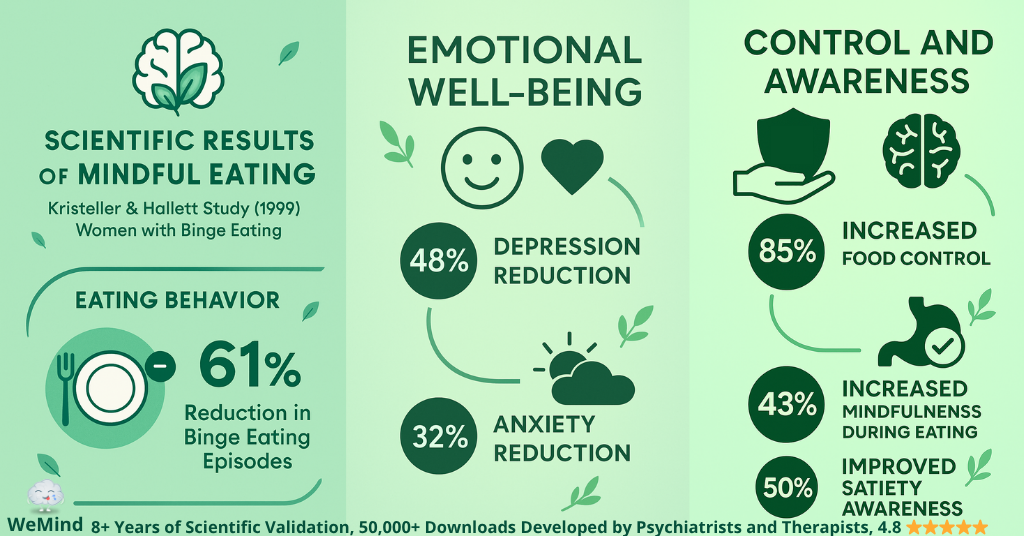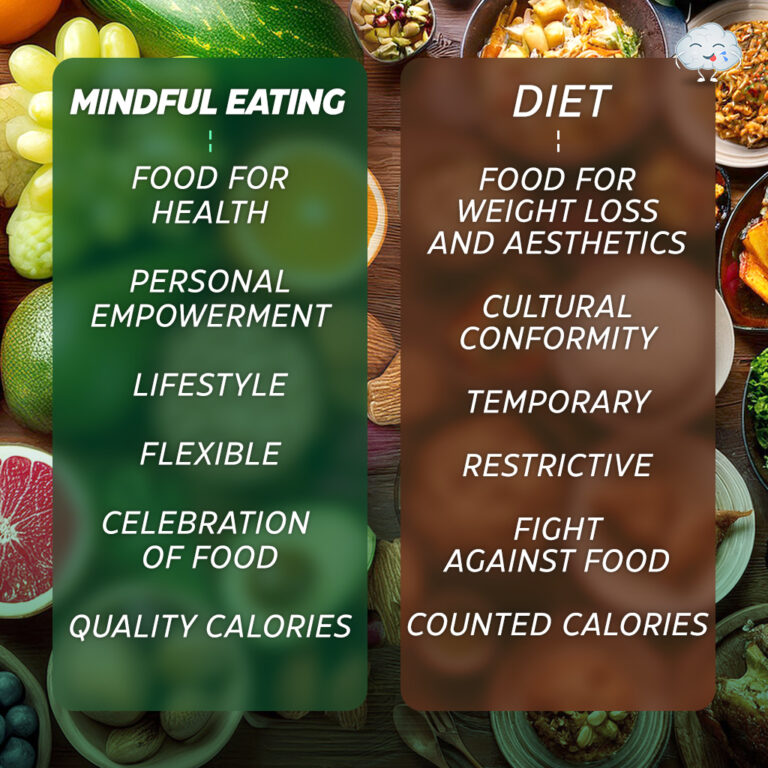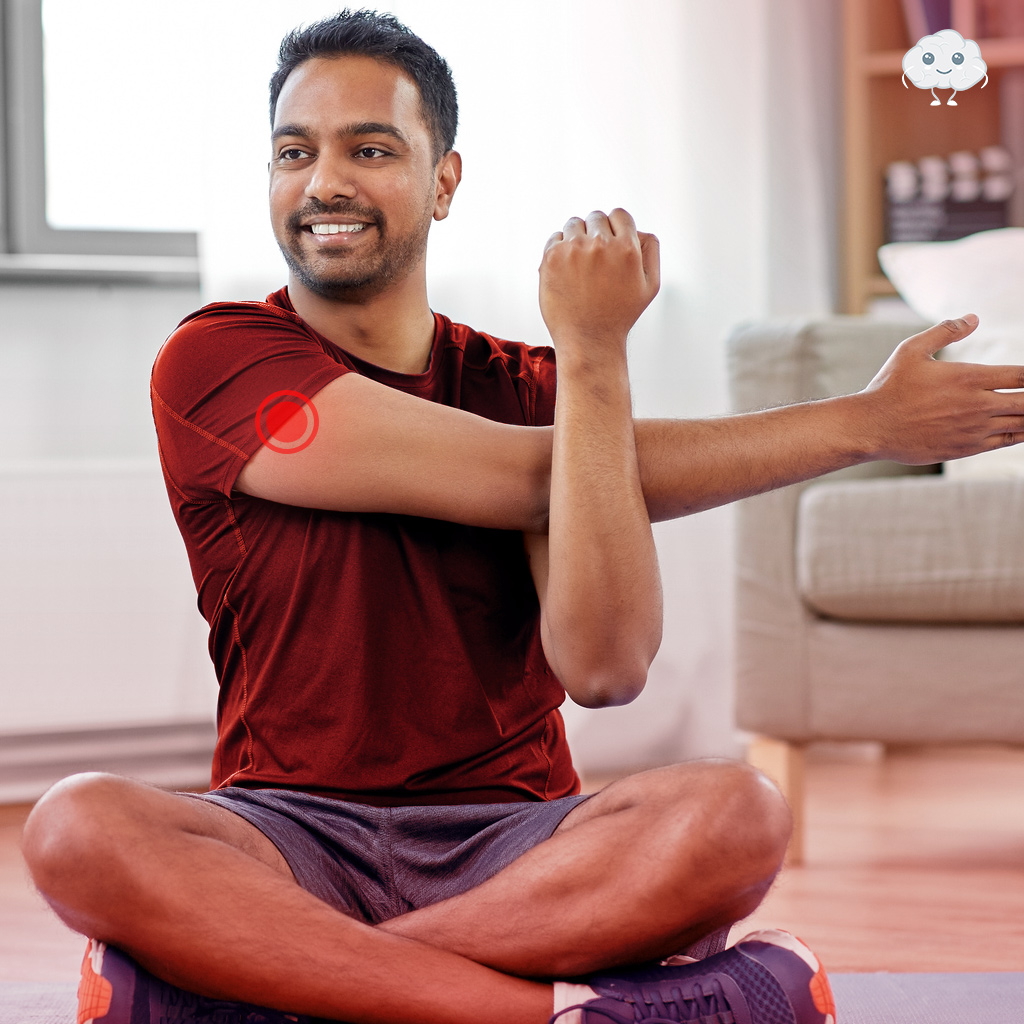Have you ever found yourself opening the refrigerator when you’re not actually hungry, just because you’re anxious or stressed? How to stop anxiety eating is one of the most frequently asked questions we receive from people seeking a healthier relationship with food. Fortunately, science offers a powerful and accessible answer: mindful eating.
In this guide, we’ll explore how scientifically validated techniques can improve your relationship with food and help you break the vicious cycle of emotional eating.

What Science Reveals About Anxiety Eating
Recent research shows that a significant portion of people engage in emotional eating, often in response to stress and anxiety (Warren et al., 2017). Furthermore, studies indicate that emotional eating is directly linked to the activation of the amygdala, the brain region responsible for processing emotions.
Therefore, when we feel anxious, our brains may automatically seek out sources of immediate pleasure—and food, especially foods high in sugar and fat, offers this temporary relief. However, this pattern creates a cycle that, in the long term, can intensify anxiety and discomfort with eating.
Mindful Eating: The Scientific Solution to Emotional Eating
Mindful eating is an approach that cultivates intentional awareness of the physical, mental, and emotional aspects of eating (Aoun et al., 2025). Unlike traditional diets, this practice focuses on how we eat, not just what we eat.
How Mindful Eating Transforms Your Brain
Neuroimaging studies reveal that mindful eating practices promote significant changes in the brain:
- Increased activity in the prefrontal cortex: This region, responsible for executive functions such as self-control and decision-making, increases its activity, contributing to the regulation of impulsive eating behaviors (Aoun et al., 2025).
- Reduced amygdala activation: Mindful eating helps reduce impulsive emotional responses to food by reducing amygdala activation, which contributes to reducing stress-related emotional eating (Aoun et al., 2025; Warren et al., 2017).
- Modulation of the hypothalamus: Fundamental to interoceptive awareness, the hypothalamus is influenced, facilitating better recognition of hunger and satiety signals (Aoun et al., 2025).
Furthermore, research shows that mindful eating can contribute to reducing cortisol levels (stress hormone), mitigating stress-induced appetite (Aoun et al., 2025).
Practical Techniques of the WeMind Method to Stop Eating Due to Anxiety
The 2-Minute Pause
Before any meal or snack, practice this technique from the WeMind method:
- Completely stop what you’re doing.
- Take a few deep breaths (inhale through your nose, exhale through your mouth).
- Ask yourself: “Am I really hungry, or am I feeling another emotion?”
- Observe your bodily sensations without judgment.
This practice aims to redirect attention to internal cues and awareness of the moment, activating the prefrontal cortex, which is fundamental for self-control and conscious decision-making.
Five Senses Technique
When you feel the urge to eat out of anxiety, engage all your senses:
- Sight: Observe the colors, textures, and shapes of the food.
- Smell: Inhale the aroma deeply before eating.
- Touch: Feel the temperature and texture in your mouth.
- Hearing: Listen to the sounds of chewing.
- Taste: Savor every nuance of the flavor.
Therefore, this WeMind method technique redirects your attention from anxiety to the present moment, interrupting the eating autopilot.
The Mindful Smile Technique
During meals, keep a slight smile on your face, even if you don’t feel like it. Research shows that this simple action activates brain areas linked to satiety and pleasure, reducing the urge to overeat.
How to Identify and Break Emotional Eating Patterns
Signs That You Do Anxiety Eating
Recognizing your triggers is crucial. Notice if you:
- Eat quickly when stressed.
- Reach for specific foods (usually sweet or fatty) during difficult times.
- Eat even when you’re not physically hungry.
- Feel guilty after emotional eating.
WeMind Method Strategies to Break the Cycle
Emotional Mapping
Keep a food diary that includes:
- What you ate.
- How you felt before eating.
- Hunger level (1-10).
- Present emotions.
Food Gratitude Technique
Before each meal, take a few seconds to give thanks:
- For the food available.
- For the people who contributed to its production.
- For the opportunity to nourish your body.
Furthermore, this practice can reduce impulsive eating and increase satisfaction with smaller amounts of food.
The Scientific Results You Can Expect
In Kristeller & Hallett’s (1999) pioneering study, which investigated the impact of a meditation-based intervention for Binge Eating Disorder (BED), participants experienced remarkable improvements. This study, conducted with obese women, demonstrated that mindful eating can significantly transform the relationship with food and emotional well-being.
Let’s look at some of the impressive results observed in this study:
- Reduction in Binge Eating: The frequency of binge eating episodes per week decreased by approximately 61%. Furthermore, the severity and preoccupation with binge eating, measured by the Binge Eating Scale (BES), decreased by approximately 52%.
- Improved Emotional Well-Being: Symptoms of depression, assessed by the Beck Depression Scale (BDI), decreased by approximately 48%, and symptoms of anxiety, assessed by the Beck Anxiety Scale (BAI), decreased by approximately 32%.
- Increased Awareness and Control: Participants’ sense of control over their eating habits increased by approximately 85%, and their mindfulness during eating increased by approximately 43%. Notably, awareness of satiety cues, crucial for avoiding overeating, improved by approximately 50%.
These figures, derived from validated research, illustrate the transformative power of mindful eating.

Start Your Journey with WeMind: Effortless Mindful Eating
We know the idea of changing your eating habits can seem daunting. But what if we told you that you could learn to eat more mindfully naturally and effortlessly by integrating mindful eating into your daily routine?
With WeMind, your journey to a healthier relationship with food is simplified. We designed our app to guide you step by step, making learning an intuitive and enjoyable experience.
To start your journey today:
- Download the WeMind app. It’s available for iOS and Android.
- Try WeMind for 7 days free! Explore all premium content, including mindful eating sessions.
- Choose a session from our “Food” cycle. Our guided meditations are created by experts to help you connect with your senses and internal cues.
- Listen to the session during your next meal. Let our voice guide you through every bite, every flavor, and every sensation. You’ll learn to savor, notice hunger and fullness, and enjoy food in a whole new way.
After the trial period, you can continue accessing all premium content with an affordable subscription, ensuring your wellness journey continues uninterrupted.
What Our Users Say:
We believe that with WeMind your life can be better, and our users prove it:
⭐⭐⭐⭐⭐ “Amazing app! In the first week I already saw huge benefits. My sleep improved, my diet, my focus, my happiness, I focused on the present, I knew how to manage my thoughts… Buy it! It’s a great investment that will yield great results.” — Wellington Silva
⭐⭐⭐⭐⭐ “It helped me so much with my diet, sleep, and other fundamental areas of life. Mindful eating is incredible!!!” — Personal Labbate
⭐⭐⭐⭐⭐ “Wonderful, it’s helped me a lot! I really liked Mindful Eating, the inner smile meditation, the morning meditation, everything! Congratulations!” — Alessandra
WeMind is your partner on this journey. We will guide you so that you can learn Mindful Eating organically, without pressure, and find out how a more balanced life can start with your plate. Your mind and body will thank you.
Improve Your Relationship with Food Today
Stopping anxiety eating isn’t just a matter of willpower—it’s a matter of training your mind to respond more consciously to emotional challenges. The WeMind method’s techniques, based on solid scientific evidence, offer a proven path to this transformation.
Also, remember that every small step toward mindful eating is a victory. Your journey to a healthier relationship with food and your emotions starts now.
Ready to take the first step? Download the WeMind app and discover how guided mindful eating sessions can benefit your relationship with food in just a few minutes a day.

References
Aoun, A., Ghoussoub, C., Farsoun, C., Mallah, A., Ayoub, F., Trezia, N., & Karam, S. (2025). Examining the Efficacy of Mindfulness-Based Interventions in Treating Obesity, Obesity-Related Eating Disorders, and Diabetes Mellitus. Journal of the American Nutrition Association, 44(4), 292-305.
Dalen, J., Smith, B. W., Shelley, B. M., Sloan, A. L., Leahigh, L., & Begay, D. (2010). Pilot study: Mindful Eating and Living (MEAL): Weight, eating behavior, and psychological outcomes associated with a mindfulness-based intervention for people with obesity. Complementary Therapies in Medicine, 18(6), 260-264.
Kristeller, J. L., & Hallett, C. B. (1999). An exploratory study of a meditation-based intervention for binge eating disorder. Journal of Health Psychology, 4(3), 357-363.
Warren, J. M., Smith, N., & Ashwell, M. (2017). A structured literature review on the role of mindfulness, mindful eating and intuitive eating in changing eating behaviors: effectiveness and associated potential mechanisms. Nutrition Research Reviews, 30(2), 272-283.




